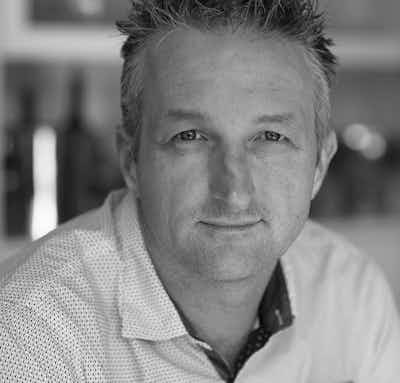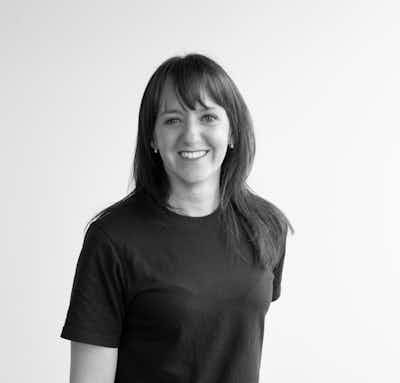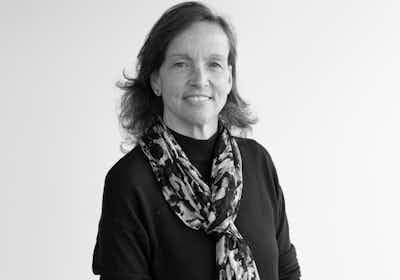This year’s theme is #BreakingTheBias. This theme explores more than gender equality, it asks us to challenge and dismantle stereotypes, fight discrimination, and to lean into how we can create a more diverse, equitable and inclusive world. This is a big theme that covers many different aspects of bias. I’ve been fortunate throughout my career to be accepted and supported in most environments in which I’ve worked, however, there were some challenging moments and bias appeared in its many different forms.
Whether conscious or not, women experience gender bias on a regular basis. Have you ever turned up to a meeting as the most experienced person in a particular field and someone has turned to your male colleague for the answer? Or you’ve said something in a meeting which gets dismissed but then seconds later your male counterpart says the same thing and they’re applauded for the idea? These scenes play out daily for many women and it’s no longer acceptable to simply recognise bias, it’s critical that we help to actively change it. To explore this year’s theme, we interviewed women and men who play key roles in the success of Envirosuite.
Sue Klose, Non-Executive Board member
One person who is breaking the bias in boardrooms across Australia is Sue Klose, a female Non-Executive Director (NED) at Envirosuite . Sue is an experienced NED and executive, with a diverse background in digital business growth and operations, corporate development, strategy and marketing.

Sue, having the right people around the table is critical to the effectiveness of a board. Tell us about the boards that you’re on and what the composition of them looks like?
My boards vary a great deal. On three boards, I am the only female. These are all technology companies with smaller boards, so it isn’t surprising. But I’ve had a good experience on all three. It really comes down to the active role of the chair and overall culture, and thankfully, each of them is very inclusive. The other two boards are larger and more mixed, so bias is less of an issue.
Have you seen more women join boards within your network?
Definitely. I think more women are aware that they can do this, and that they should do this. If we have more diverse governance, organisations will be better for it. There has also been a lot of support for women joining boards. The Australian Institute of Company Directors (AICD) and other groups are clearly behind it, and many influential chairs (female and male) actively seek out candidates with different backgrounds: gender, age, national origin or career path. I find it all very encouraging.
According to AICD, the proportion of women on ASX200 boards hit 34.2 per cent at the end of 2021. How can Australian companies create more pathways for women to join boards?
The most common pathway to a board career is a highly successful executive career path, especially with P&L responsibility or a major operational role. So, it follows that companies need to focus on diversity right down through their ranks. Companies can also help by providing board exposure to their high potential female executives. For example, senior women should be presenting to the boards and board committees and building their networks, even while they’re still in executive roles.
Beyond gender, do you believe Australian boards also need to focus on diversity for other marginalised people?
Absolutely. In fact, I become frustrated when diversity is taken to mean only gender. There are so many more aspects to diversity: age, national origin, career background, orientation, and every other factor you can think of. Sometimes just a diversity of styles and approaches is what’s needed. A good board Chair will know this instinctively. The days are over when boards are made up of a personal network all with the same background.
What do you think people can do to help break the bias?
Anyone in a role of influence has an obligation in my view to be aware of bias and to actively keep it from getting in the way. Every board Chairperson or nominating committee simply must look for a broad, diverse slate of candidates. Boards also have an obligation to ask the right questions of executive teams anytime we’re discussing organisational changes, promotions, or key hires. I think it’s also very impactful when senior people take the time to notice diverse high potential individuals and get to know them and encourage them. Sometimes it’s just a very small step, but if you plant those seeds early, it can help to set someone on the right path for the future.
David Currie, Environmental Intelligence Advisor

Based out of the Netherlands, David’s role means he spends a lot of time collaborating and working with Environauts all around the world. As a voluntary member of the culture team, he’s also helping to shape and drive a more inclusive and connected culture. Having worked for Envirosuite for many years and in different roles, David knows a thing or two about how he and others can help to support and elevate women.
How do you help break the bias for women around you at Envirosuite?
For me there are two ways which help break the bias towards women in the workplace. Number one: actively listen to what they have to say, and number two which is just as important, is to treat others the way I want to be treated. Every interaction that I have, I try to consider before speaking how would this make someone feel, and that helps me respond to people with respect, which is a response that I would want to have for myself.
This year’s theme talks to more than gender, it’s also stereotypes and discrimination. What can men do to help challenge these biases?
There's no job at Envirosuite that could not be done by any person within the company. We men can lift our game in the workplace by simply listening and actually showing that we care. Actively listening in a respectful conversation allows us to appreciate the views of others in the workplace. There is no need for an alpha mentality as we are all human and are fundamentally flawed. No one is perfect, and everyone should have the equal opportunity to excel.
Kathleen Delaney, Global Noise Office Manager
Another person who is breaking the bias in a typically male dominated industry and field is Kathleen Delaney, who is based in Melbourne. As a key member of the Environmental Intelligence Services team, Kathleen leads a skilled and dedicated team of analysts on some of the most important accounts in the Aviation sector. She also holds a Private Pilot Licence, which is no easy feat because according to the Pilot Institute in America, there are only 7.41% of private pilots that are female.

You started at Envirosuite as a Flight & Noise Data Analyst in 2012. How has the aviation industry and company evolved since then in relation to female participation?
When I started, the female to male ratio at Envirosuite was very low and mainly limited to administration type roles, or marketing and project Management. In the areas of Data Management and IT Development, female participation was, and still is, low, however this is also a reflection of the enrolment ratios in tertiary education in these fields. It is great to see such a focus on STEM and code-clubs in schools now to help improve those ratios and try to attract more females into the Engineering and IT industry.
Over the last 10 years, I've been part of a progressive, growing company, where the expansion of teams and introduction of new roles has resulted in more females in the workplace. This also applies to our airport customers, where we are now working with some amazing women in an industry that has been dominated by men for a very long time.
As a mother and professional, how do you break the bias around the stereotype of the ‘working mum’?
I feel the working mum of this generation is greatly different to the last generation. In today's world, being a working mum is often a necessity more than a choice, and there is a lot of pressure that comes with it.
Despite how it may appear, being a working mum is hard work and takes a lot of organisation, discipline and determination to juggle a family and a career. There are lots of days where we experience 'mum guilt' when we've forgotten about an upcoming school excursion, or over the weekend we forget to replace a pair of school shoes that broke the week before.
We can 'have it all' but let's be realistic - there are some days where it feels like we've let the home life completely fall apart and we beat ourselves up over it. There are other days where we feel like we've let people down at work. Sometimes being a working parent is an emotional rollercoaster due to the pressure we put on ourselves to make sure we meet everybody's expectations at home and at work and it can be tough.
I have the privilege of working with many mums at Envirosuite - all are resilient, determined, and extremely skilled and capable. They're very organised and outcome focused, which is essential in a fast-paced technology environment.
You’re a member of the senior leadership team within Envirosuite, what do you think makes a female leader unique?
I've found that female leaders bring a very logical and practical perspective to everything they do and are a great inclusion in leadership teams to challenge boundaries and create balance.
They are also great doers. I love the saying 'if you want something done, ask a busy person' and find my first thought of that busy person is always a female.
